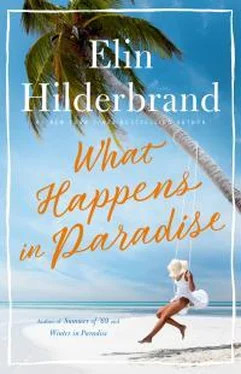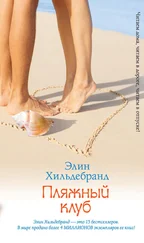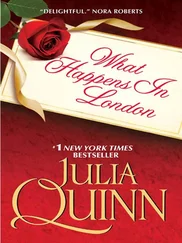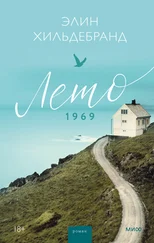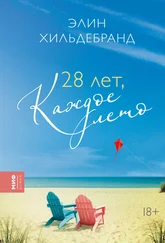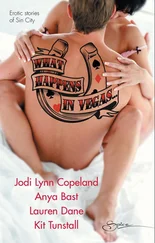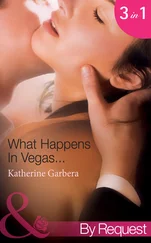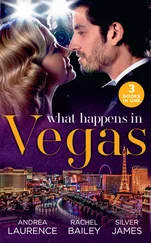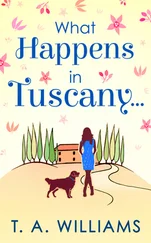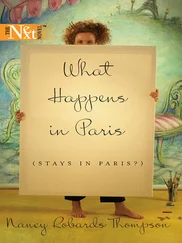The characters and events in this book are fictitious. Any similarity to real persons, living or dead, is coincidental and not intended by the author.
Copyright © 2019 by Elin Hilderbrand
Cover design by Lauren Harms
Cover photograph by cdwheatley / Getty Images
Author photograph by Nina Subin
Cover © 2019 Hachette Book Group, Inc.
Hachette Book Group supports the right to free expression and the value of copyright. The purpose of copyright is to encourage writers and artists to produce the creative works that enrich our culture.
The scanning, uploading, and distribution of this book without permission is a theft of the author’s intellectual property. If you would like permission to use material from the book (other than for review purposes), please contact permissions@hbgusa.com. Thank you for your support of the author’s rights.
Little, Brown and Company
Hachette Book Group
1290 Avenue of the Americas, New York, NY 10104
littlebrown.com
twitter.com/littlebrown
facebook.com/littlebrownandcompany
First ebook edition: October 2019
Little, Brown and Company is a division of Hachette Book Group, Inc. The Little, Brown name and logo are trademarks of Hachette Book Group, Inc.
The publisher is not responsible for websites (or their content) that are not owned by the publisher.
The Hachette Speakers Bureau provides a wide range of authors for speaking events. To find out more, go to hachettespeakersbureau.com or call (866) 376-6591.
ISBN 978-0-316-43556-7
E3-20190822-DA-NF-ORI
Table of Contents
Cover
Title Page
Copyright
Dedication
Author’s Note
Part One: A Rooster and Two Hens
Part Two: Lawyers, Guns, and Money
Part Three: The Soggy Dollar
Part Four: Christmas Cove
Acknowledgments
Discover More
About the Author
Also by Elin Hilderbrand
This novel is for St. John, U.S. Virgin Islands—the island itself and
everyone who lives there.
Thank you for the revelry, and
thank you for the refuge.
Explore book giveaways, sneak peeks, deals, and more.
Tap here to learn more.
Author’s Note
What Happens in Paradise is the second book in a planned trilogy. While this book can, most certainly, be read as a stand-alone, a richer and more textured reading experience will be had by starting with book one, Winter in Paradise.
In the author’s note in Winter in Paradise, I explained that the St. John portrayed in the novel is the one that existed before September of 2017, when Hurricanes Irma and Maria created such widespread devastation. There are businesses and restaurants mentioned in both books that now exist only on my fictional St. John. Thank you.
Part One A Rooster and
Two Hens
Irene
She wakes up facedown on a beach. Someone is calling her name.
“Irene!”
She lifts her head and feels her cheek and lips dusted with sand so white and fine, it might be powdered sugar. Irene can sense impending clouds. As the sun disappears, it gains a white-hot intensity; it’s like a laser cutting through her. The next instant she feels the lightest sprinkling of rain.
“Irene!”
She sits up. The beach is unfamiliar, but it’s tropical—there’s turquoise water before her, lush vegetation behind, a rooster and two hens strutting around. She must be back on St. John.
How did she get here?
“Irene!”
A man is calling her name. She can see a figure moving toward her. The rain starts to fall harder now, with intention; the tops of the palm trees sway. Irene dashes for the cover of the tree canopy and wishes for a towel to wrap around her naked body.
Naked?
That’s right; she forgot to pack a swimsuit.
The man is getting closer, still calling her name. “Irene! Irene!” She doesn’t want him to see her. She tries to cover up her nakedness by hunching over and crossing her arms strategically; it feels like an impossible yoga pose. She’s shivering now. Her hair is wet; her braid hangs like a soggy rope down her back.
The man is waving his arms as if he’s drowning. Irene scans the beach; someone else will have to help him because she certainly can’t. But there’s no one around, no boats on the horizon, and even the chickens are gone. There will be a confrontation, she supposes, so she needs to prepare. She studies the approaching figure.
Irene opens her mouth and tries to scream. Does she scream? If so, she can’t hear herself.
It’s Russ.
She wipes the rain out of her eyes. Russell Steele, her husband of thirty-five years, is slogging toward her through the wet sand, looking as though he has something urgent to tell her.
“Irene!”
He’s close enough now for her to see him clearly—the silvering hair, the brown eyes. He has a suntan. He’s had a constant tan since he started working for Todd Croft at Ascension, thirteen years ago. Their friends used to tease Russ about it, but Irene barely noticed, much less questioned it. He was on business in Florida and Texas; the tan seemed logical. She had chalked it up to lunch meetings at outdoor restaurants, endless rounds of golf. How many times had Russ told her he would be unreachable because he’d be playing golf with clients?
Now, of course, Irene knows better.
“Irene,” he says. His voice frightens her; she digs her heels into the sand. Russ’s white tuxedo shirt is so soaked that she can see the flesh tone of his skin beneath. His khaki pants are split up one leg. He looks like he’s survived a shipwreck.
No, Irene thinks. Not a shipwreck. A plane crash. A helicopter crash, that’s it.
“Russ?” she says. He’s getting pummeled by rain, and Irene flashes back twenty years to a Little League game of Baker’s that was suspended due to a violent midwestern thunderstorm. All the parents huddled in the dugout with the kids, but Russ, in a show of gallantry, ran out onto the field to collect the equipment. Another father, Steve Sonnet (Irene had always rather disliked Steve Sonnet), said, Reckless of him, picking up those metal bats. He’s going to get himself killed.
There was another time she remembers Russ soaking wet, a wedding in Atlanta. The Dunns’ daughter Maisy was marrying an executive at Delta Airlines. This was five or six years ago, back when Irene and Russ found themselves attending more weddings than they had even when they were young. The reception was held at Rhodes Hall, and when she and Russ emerged from the strobe-lit dance floor and martini bar, it was to a downpour. Again, Russ insisted on playing the hero by tenting his tuxedo jacket over his head and dashing across the parking lot to their rental car. When he’d pulled up to the entrance a few moments later, his shirt had been soaked through, just like this one is now.
“The storm,” Russ says, “is coming.”
Well, yes, Irene thinks. That much is obvious. It’s a proper deluge now, and the darkest clouds are still moving toward them. “I thought you were dead,” she says. “They told me…” She stops. She’s speaking, but she can’t hear herself. It’s frustrating. “They told me you were dead.”
“It will be a bad storm,” Russ says. “Destructive.”
“Where should we go?” Irene asks. She turns to face the trees. Where do the chickens hide from the rain? she wonders. Because she would like to hide there too.
At eight o’clock on the dot, Irene wakes Cash. He has started calling her Mother Alarm Clock.
“I had another dream,” she says.
Cash props himself up on his elbows in bed. His blond hair is messy and he’s growing a beard; he hasn’t shaved since they left the island. Irene has put him in the grandest of her five guest rooms, the Excelsior suite, she calls it. It has dark, raised-panel walls with a decorative beveled edge at the chair rail and an enormous Eastlake bed with a fringed canopy. There’s also a stained-glass transom window that Irene got for a steal at a tiny antiques shop in Solon, Iowa, and a silk Persian rug in burgundy and cream that she purchased from a licensed dealer in Chicago. (She’d thought Russ might veto a five-figure rug, but he told her to go ahead, get it, whatever made her happy.) Irene’s favorite piece in the room is a wrought-iron washstand that holds a ceramic bowl edged in gold leaf; above it hangs a photograph of Russ’s mother, Milly, as a young girl in Erie, Pennsylvania, in 1928. Irene remembers the joy and pride she’d felt in refurbishing this room—every room in the house, really—but at this instant, she can’t understand why. The Victorian style seems so heavy, so overdone, so tragic.
Читать дальше
